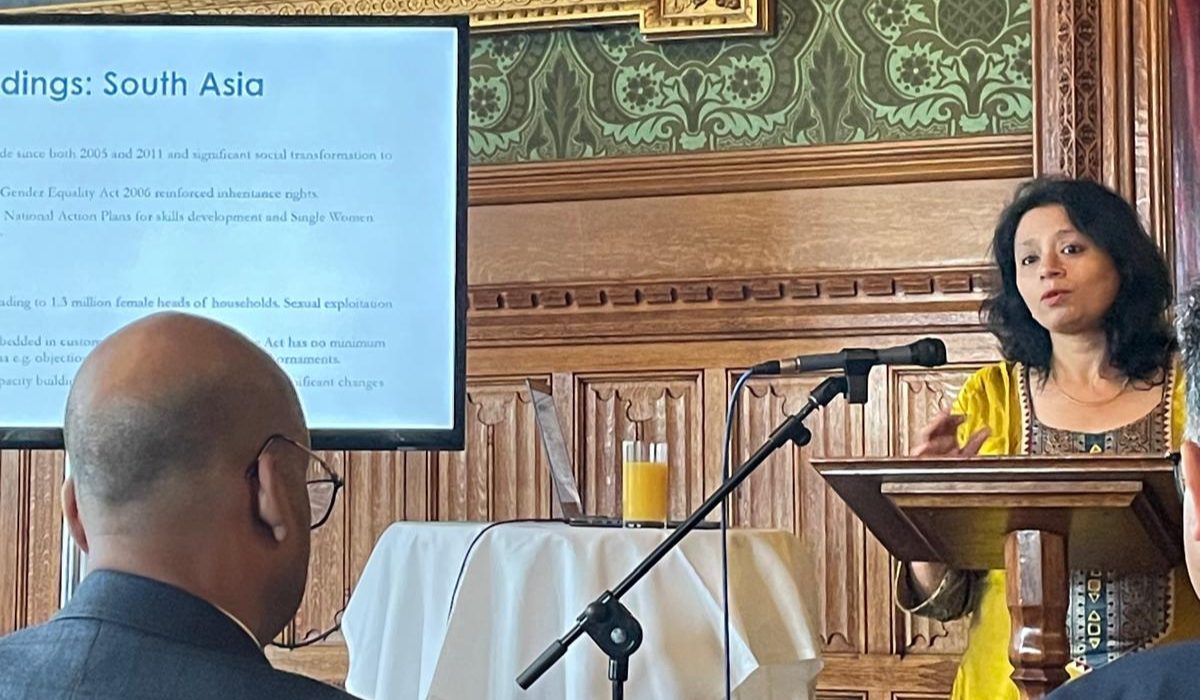Lucy Cavendish’s Director of Studies launches impactful study at the House of Lords.
Dr Saradamoyee Chatterjee, Director of Studies in Land Economy at Lucy Cavendish College, recently completed a significant research study examining the impact of International Widows Day across diverse regions of the globe.
The study, funded by the Loomba Foundation, explored the experiences of widows in 11 countries across South Asia, Latin America, and Sub-Saharan Africa. It assessed the policy impacts of International Widows Day, observed annually on June 23rd, within the framework of Sustainable Development Goal 5, which aims to achieve gender equality by 2030.
Dr Chatterjee's research, co-authored with Anushka Sisodia, highlights the challenges faced by an estimated 258 million widows worldwide. These challenges include pervasive stigma and discrimination, poverty, denial of inheritance rights, harmful cultural practices, and the failure of states to protect their rights.
The study report, "Not Leaving Widows Behind: An assessment of the progress and impact of the UN's International Widows Day in South Asia, Latin America, and Sub-Saharan Africa, 2005–2023," was launched at the House of Lords on September 5th.

The report underscores the importance of a systematic, evidence-based approach to policy formulation and adequate resource allocation to improve the lives of widows. It offers tailored policy recommendations for each country studied to address systemic discrimination and ensure the inclusion of widows in broader gender rights and development frameworks.
Dr Chatterjee's research is a crucial step towards raising awareness about the challenges faced by widows and advocating for policy changes to improve their well-being. It also exemplifies Lucy Cavendish College's commitment to impactful research that addresses critical social issues.
The study concluded that while International Widows Day has successfully increased public awareness of the difficulties widows face, achieving meaningful improvements in their quality of life requires a systematic approach to policy and sufficient resources. This necessitates addressing the numerous challenges widows face, including stigma, poverty, and lack of inheritance rights. The report provides tailored policy recommendations to address discrimination and ensure widows are included in development frameworks across each of the eleven countries studied.
The full report is available at DOI: 10.13140/RG.2.2.12053.95209




